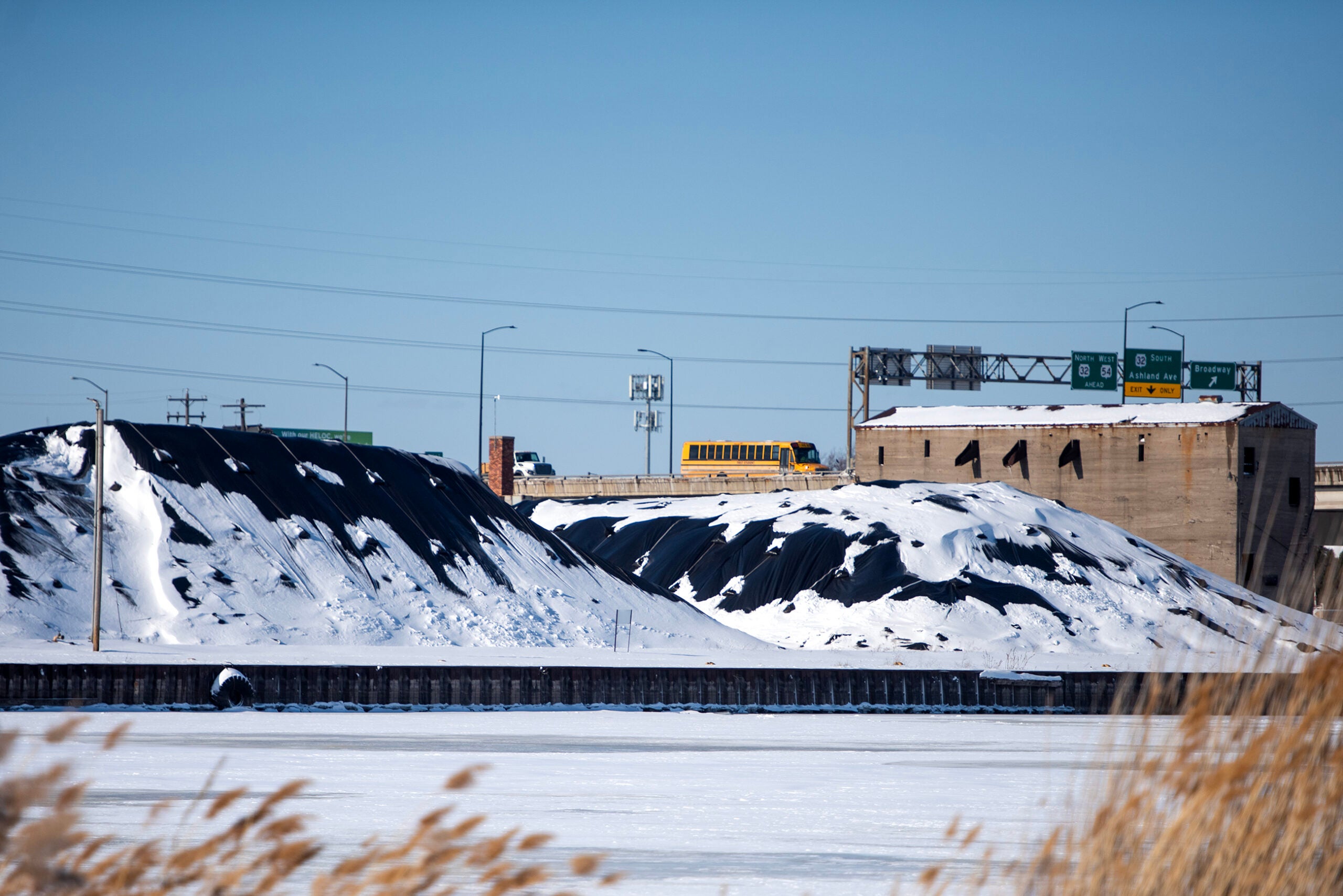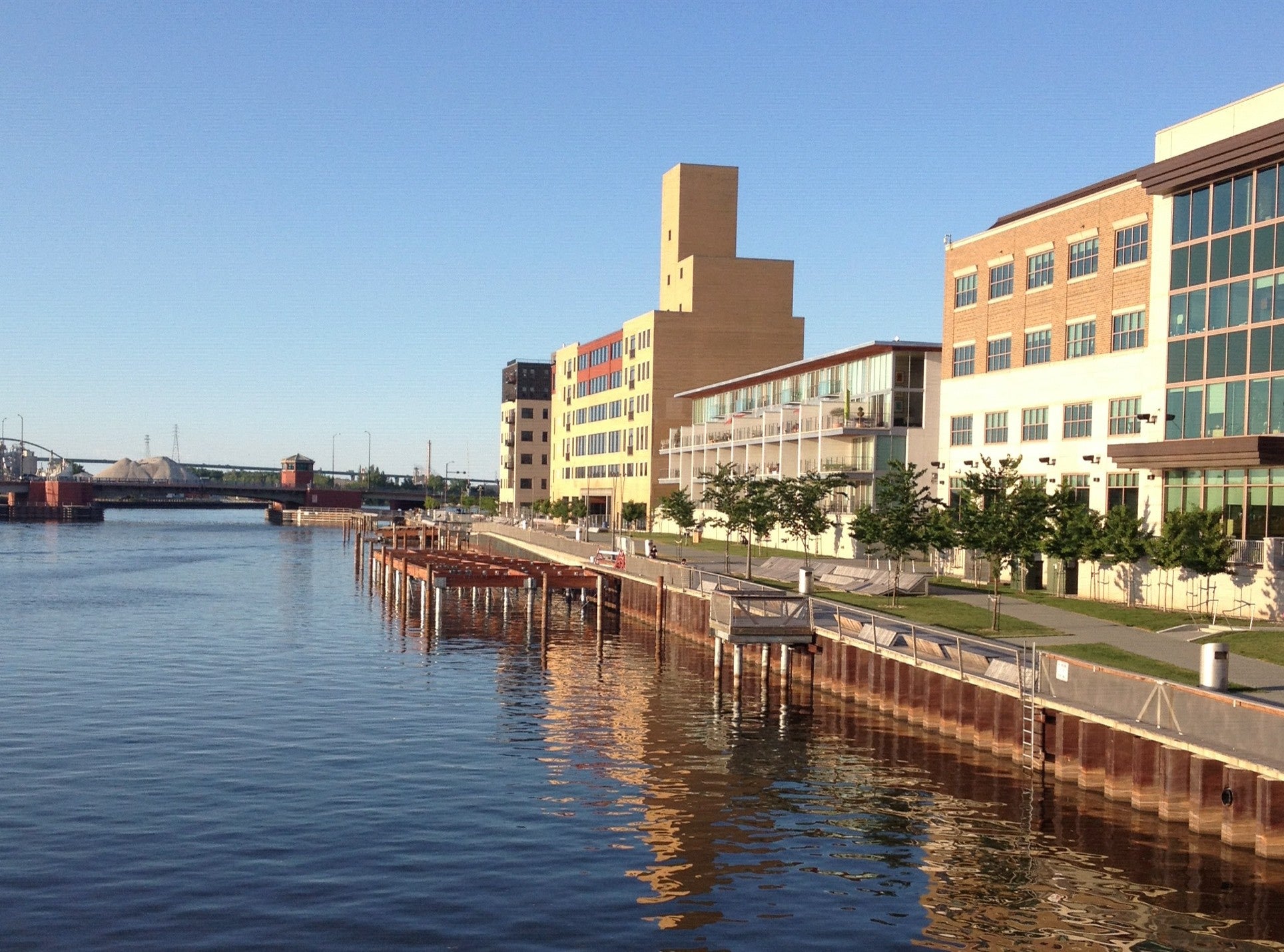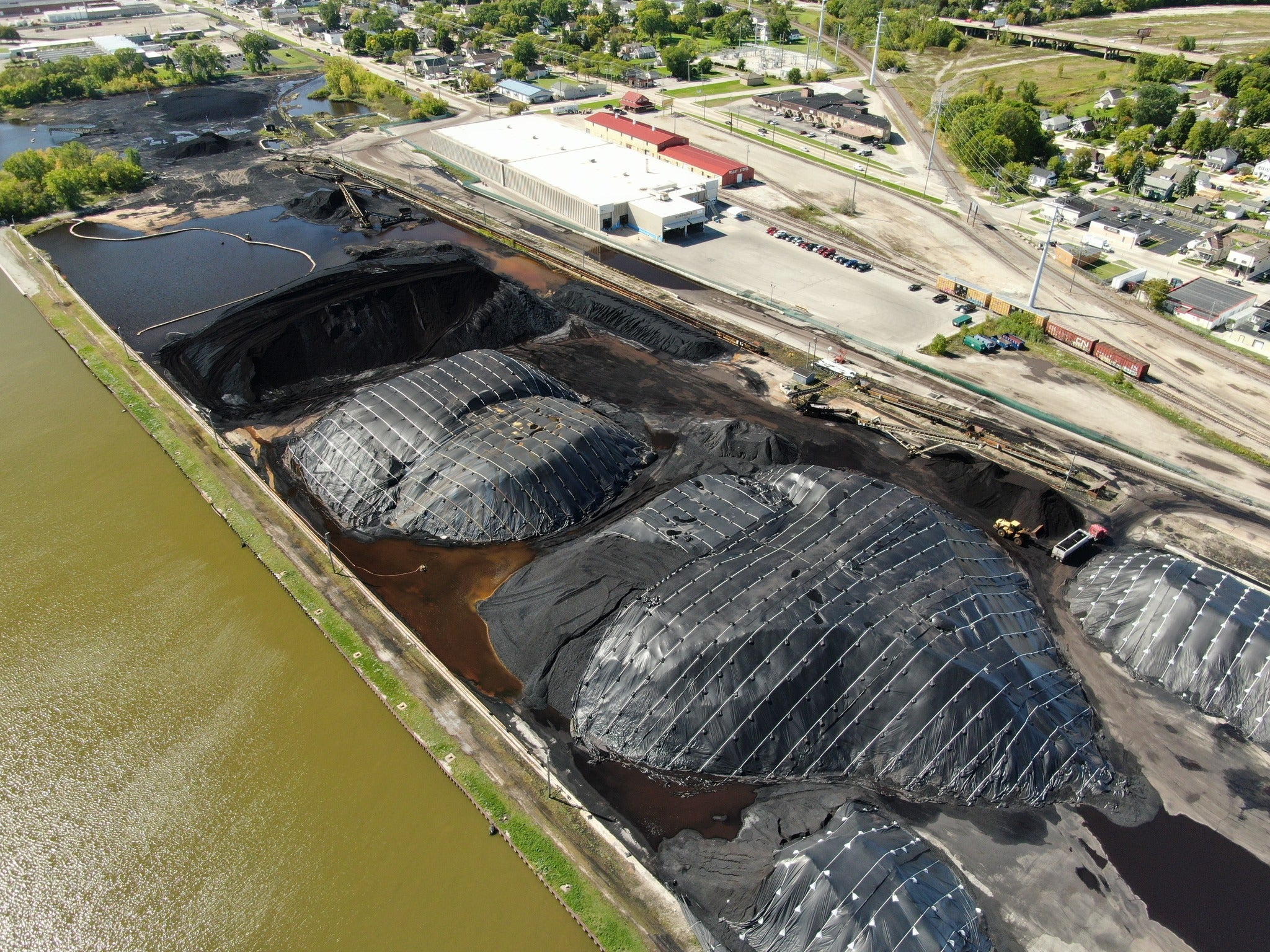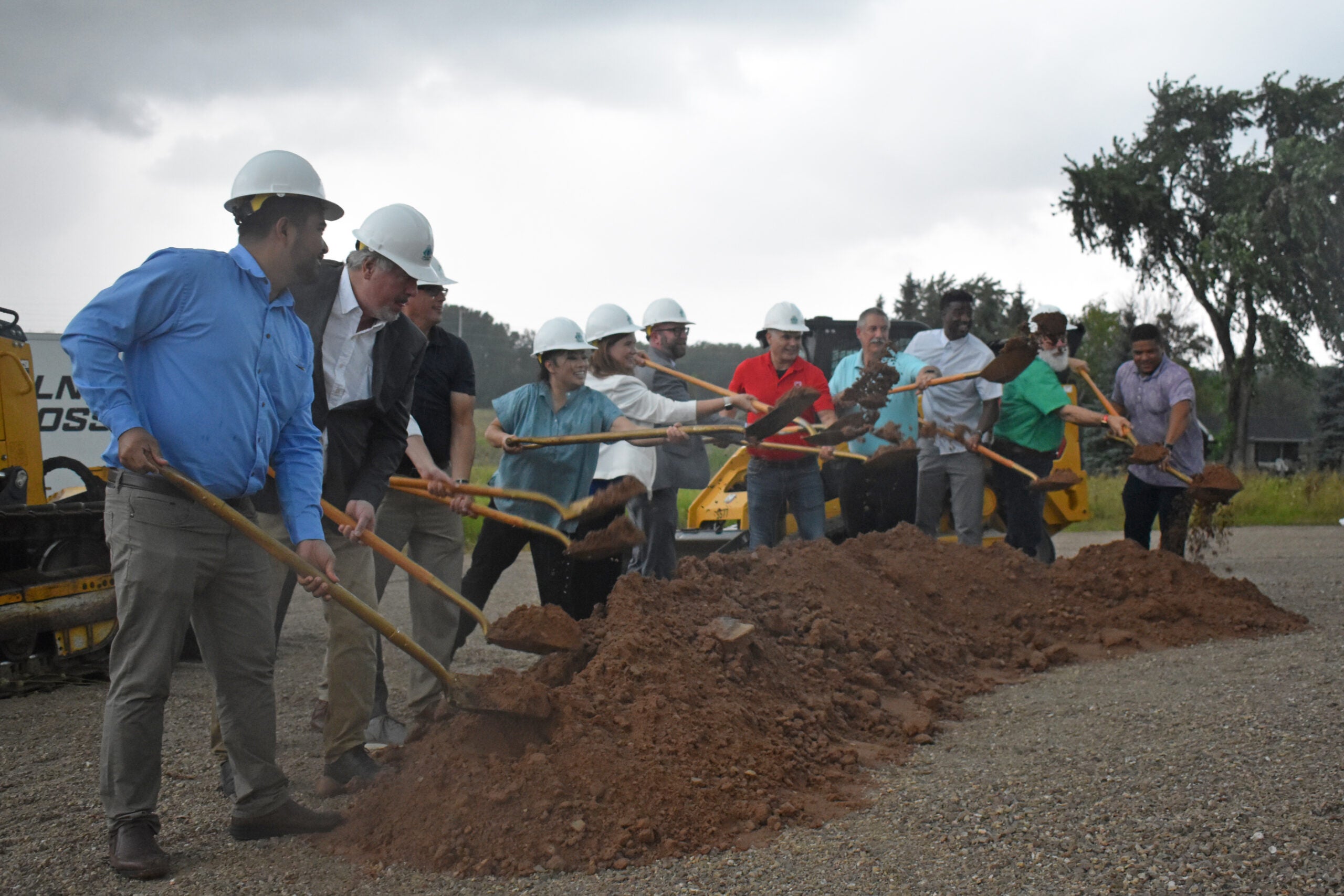Negotiations are resuming around moving Green Bay’s downtown coal piles after previous proposals were rejected.
The C. Reiss Co. has operated a bulk commodities storage facility on the west bank of the Fox River since 1900. To many passersby, the property is known as the home of the city’s mountains of coal.
Efforts by local leaders to move the massive coal piles have been ongoing for decades, and in December a deal with the company fell apart after the Brown County Board voted to make changes to an agreement reached by the company and the county.
Stay informed on the latest news
Sign up for WPR’s email newsletter.
Green Bay City Council President Brian Johnson said the area is prime riverfront real estate.
“Green Bay, historically, as a community, grew up around industry, and a lot of that was shipping [and] import operations,” Johnson said. “But as our city has grown up, new opportunities have developed. And if you look at today’s modern-day economic development, it’s really about regaining access to the waterfront for more recreational opportunities.”
Johnson, whose district contains the coal piles, said the city and Brown County have had productive conversations in recent weeks and are working to bring all parties together to hash out the sticking points that have prevented a deal from getting done.
Brown County owns a decommissioned power plant at the mouth of the river that it was awarded grant funding to redevelop as part of a plan to expand the Port of Green Bay.
County administration had negotiated the terms of a lease with C. Reiss, and the company warned that it would view changes as a “rejection” of the agreed-upon terms. The county board took the December vote to make the changes anyway.
And last month, the board voted against negotiating a deal based on C. Reiss’ latest proposal for relocating the coal piles. Instead, the Green Bay Press-Gazette reported, the board opted to move forward with meeting all eight companies that formally expressed interest in the port expansion site, including C. Reiss.
Because plans for how to accomplish the project have been held up, the county has only been able to request about $2 million of a $15 million state grant, according to the state Department of Administration. Secretary Kathy Blumenfeld recently told WLUK-TV that the grant is “contingent on getting a deal done.”
“It’s a complex agreement,” she told the station. “We want the city and the county and C. Reiss to continue to work together to get that deal done.”
In response to Blumenfeld’s comments, C. Reiss released a statement on March 27 saying the company “completely agrees” that a deal needs to be made.
“We’ve now accepted an invitation to meet with Brown County and the city of Green Bay to negotiate an agreement on moving the coal piles to the old Pulliam Power Plant site,” the statement reads.
The same day, Brown County Executive Troy Streckenbach and County Board Chair Pat Buckley released a joint statement saying the deal rejected last month would have allowed C. Reiss to control the entire power plant site “for 100 years.” They stated leaders from the county and city had met last month to discuss the coal piles.
“The city and county agreed at that meeting that the alternate site should be discussed further,” Streckenbach and Buckley said. They said a meeting date had not been finalized.
In an interview with WPR, Buckley said the county is still open to moving the piles to a portion of the power plant site, but he doesn’t want to commit to a 100-year lease.
“So much can change between now and then,” Buckley said. “We don’t want to be in a position where they’re not using the site for its intended purpose, and it’s just sitting there and not being able to be utilized in the best interest of the county.”
He also said the county wants to find the “best deal possible for all parties involved.” While he’s not ruling out the power plant site, Buckley also said he would “100 percent endorse” moving the coal piles to a secondary location.
Johnson said the power plant is still the “priority site” based on the company’s needs, but the city has spoken with C. Reiss about an alternate site.
“From the city’s perspective, we just want to see them relocated, and we’re willing to be a party to any type of conversation that makes sense in order for us to achieve that objective,” he said. “It really becomes a deal between the county and C. Reiss in terms of what makes the most sense for both of them.”
Blumenfeld told WLUK-TV the state would have to see the details of a deal to move the piles to another site before deciding whether the $15 million grant could be shifted.
Wisconsin Public Radio, © Copyright 2025, Board of Regents of the University of Wisconsin System and Wisconsin Educational Communications Board.




